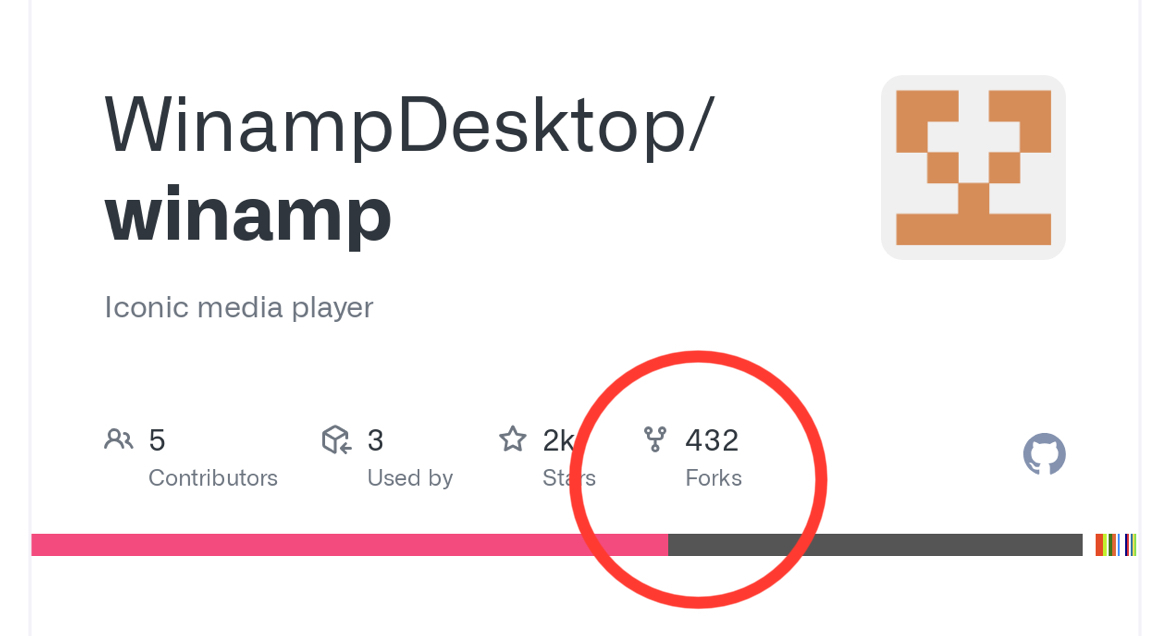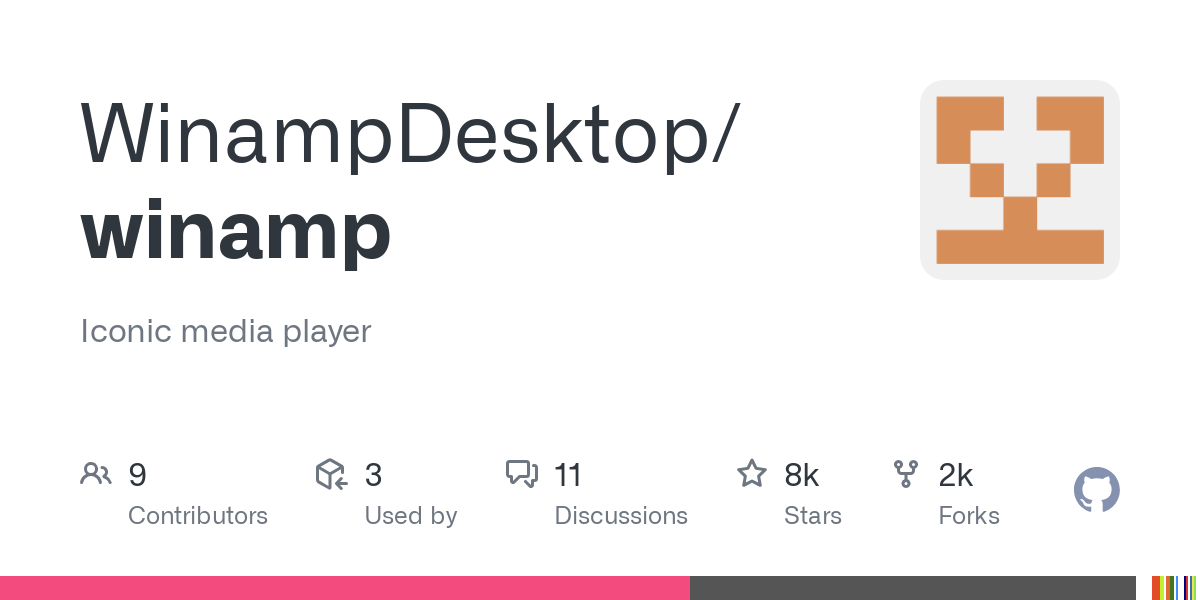- cross-posted to:
- programming@programming.dev
- opensource@lemmy.ml
- technology@lemmy.world
- cross-posted to:
- programming@programming.dev
- opensource@lemmy.ml
- technology@lemmy.world
They have the audacity to use the term copyleft for that bullshit license… It doesn’t mean anything unless you have the right to fork it.
No Forking: You may not create, maintain, or distribute a forked version of the software.
 Lol 💀
Lol 💀I will hold on to the memories, thanks.
I recon I would use it if I actually played media from a local source. But alas I am a whore for the stream.
and let me guesa you only ever listen to the same 3 playlists you vould easily just download. that’s how it is for me at least
The community can make a better app than the piss poor job the new owners have attempted. Following this development
The community has been making Winamp clones for as long as Winamp has existed. XMMS appeared the same year as Winamp, in 1997. Audacious is still around and still has a mode where it uses Winamp skins.
The thing about Winamp is that it had its time in the spotlight for a few years and then everybody moved on to the new types of media libraries like foobar2000. Today it’s just a museum piece.
I’m curious, why does this require OpenSSL in order to compile? I’m not aware of any audio formats that use encryption, but I could be wrong.
My first thought was for connecting to https streams, but I don’t remember Winamp having this capability. “Back in the day,” I used Winamp for playing local audio and RealPlayer for what little streaming was available.
I don’t know about https specifically but winamp could handle all kinds of streams.
Looks like curl and opus want it https://github.com/search?q=repo%3AWinampDesktop%2Fwinamp+openssl+language%3AC&type=code
Three streaming (like pointed in the other comment) was my initial reaction too, but indeed at the time https for streaming would be very rare.
Another possibility is to realize that openssl isn’t just for communication, but also has implementation of cryptographic algorithms.
Perhaps openssl was used for validation of licensing key? For example they could sign the license with their private key and WinAmp could verify it’s authenticity with its public key.
Couldn’t you look at the code and see what ssl calls it’s making?
Maybe to connect to their update servers and validate updated binaries or something like that? Not sure if it supported calling home to get updates.
i remember listening to icecast radio on winamp back in the day
I’ll just mention QMMP which is basically a Winamp clone. Works great and I’ve used it for many years now.
deleted by creator







